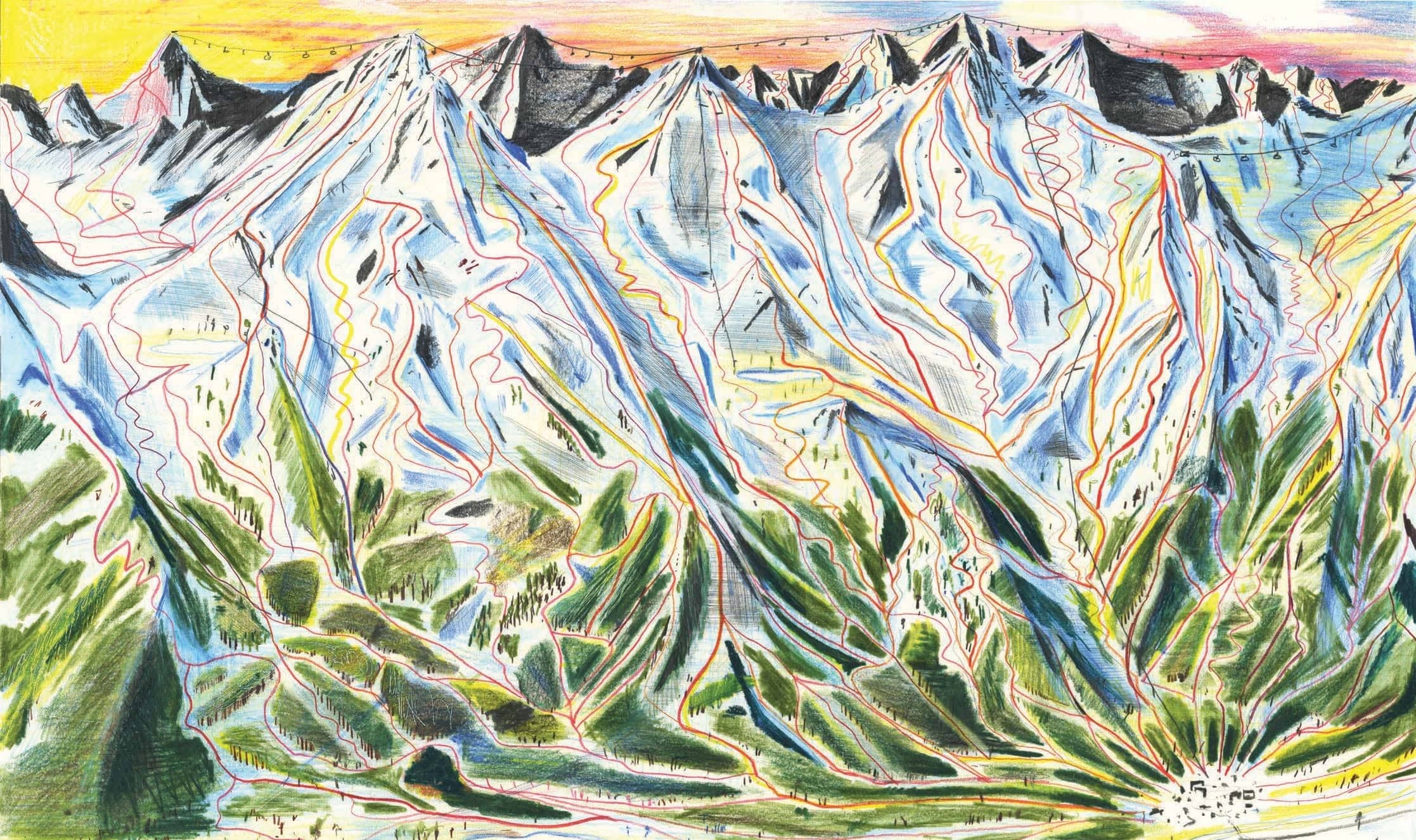Alterra and Vail Resorts have bought up dozens of slopes to enhance their competing all-you-can-ski season tickets. How will the new business model weather the coming storm?

Even among the world’s most polished ski resorts, Deer Valley—with its vast carpets of flawlessly groomed snow spread across four Utah peaks—was always conspicuously clubby. Skiers can pick up a free copy of the Wall Street Journal on their way to the fire, while instructors eat lunch in separate employee cafeterias, lest they mingle with the guests. “The idea was to replicate the service and experience of a five-star hotel,” says Bob Wheaton, who ran the resort for 22 years before stepping aside in January.
But when the lifts started cranking this season, things looked a little different. Among the affluent families were young couples and packs of Salt Lake City friends navigating the runs for the first time. The reason: Deer Valley had suddenly become a bulk-buy product. In 2017 a new conglomerate (later dubbed Alterra Mountain Co.) bought 11 of America’s most popular ski resorts and teamed with dozens more mountain owners to honor a single-season lift ticket called the Ikon Pass. Compared with buying a string of daily lift tickets for as much as $200 a pop, the Ikon Pass (which ranges from $599 to $899) can pay for itself in as few as three days. Only one other product is in direct competition with Ikon: The Epic Pass from Vail Resorts Inc. admits skiers to its aggressively expanding chain of 20 destinations including the company’s namesake ski area in Colorado’s Rocky Mountains.
Together, Alterra’s and Vail’s passes can be swiped at 58 North American resorts, as well as a handful of resorts in Oceania and Europe. The two competing conglomerates are trying to turn occasional skiers into frequent skiers and frequent skiers into serial skiers who incidentally buy a lot of midmountain beers and slopeside hotel rooms. Deer Valley and resorts like it have become a sort of research and development lab forecasting possible futures for the long-struggling ski industry.
Esta historia es de la edición March 04, 2019 de Bloomberg Businessweek.
Comience su prueba gratuita de Magzter GOLD de 7 días para acceder a miles de historias premium seleccionadas y a más de 9,000 revistas y periódicos.
Ya eres suscriptor ? Conectar
Esta historia es de la edición March 04, 2019 de Bloomberg Businessweek.
Comience su prueba gratuita de Magzter GOLD de 7 días para acceder a miles de historias premium seleccionadas y a más de 9,000 revistas y periódicos.
Ya eres suscriptor? Conectar

Instagram's Founders Say It's Time for a New Social App
The rise of AI and the fall of Twitter could create opportunities for upstarts

Running in Circles
A subscription running shoe program aims to fight footwear waste

What I Learned Working at a Hawaiien Mega-Resort
Nine wild secrets from the staff at Turtle Bay, who have to manage everyone from haughty honeymooners to go-go-dancing golfers.

How Noma Will Blossom In Kyoto
The best restaurant in the world just began its second pop-up in Japan. Here's what's cooking

The Last-Mover Problem
A startup called Sennder is trying to bring an extremely tech-resistant industry into the age of apps

Tick Tock, TikTok
The US thinks the Chinese-owned social media app is a major national security risk. TikTok is running out of ways to avoid a ban

Cleaner Clothing Dye, Made From Bacteria
A UK company produces colors with less water than conventional methods and no toxic chemicals

Pumping Heat in Hamburg
The German port city plans to store hot water underground and bring it up to heat homes in the winter

Sustainability: Calamari's Climate Edge
Squid's ability to flourish in warmer waters makes it fitting for a diet for the changing environment

New Money, New Problems
In Naples, an influx of wealthy is displacing out-of-towners lower-income workers